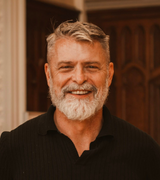Joel Faflak

Professor
Fellow of the Royal Society of Canada
B.A. University of Western Ontario 1981
M.A. University of Western Ontario 1991
Ph. D. University of Western Ontario1998
University College 3433
519-661-2111 ext. 85818
jfaflak@uwo.ca
Office Hours:
Research
My research is anchored in British literature and thought 1750-1850, with a focus on the tumultuous and paradigm-shattering Romantic literature, philosophy, and culture (roughly 1789-1832) as they emerge from the Enlightenment and get transformed (or not) in the Victorian period. How Romantic writers and thinkers came to view the world, and their prescient relationship to our own time, is still the lens through which I view, well, pretty much everything. My primary interest has been in Romantic psychology, particularly its relationship to psychoanalysis and psychiatry (which gets invented in the Romantic period). This interest has broadened to consider the social and political uses to which this psychology was put, which has led to my current interest in what I call the psychopathology of happiness as it was treated by both Romantic and post-Romantic writers. My interests in psychiatry and happiness also inform my broader interest in popular culture and in the role culture, intellectualism, hope, and leadership play in the public sphere. For instance, I read in the rise of the American film musical an ideology of good feelings directly traceable to the rise of psychiatry in the late eighteenth century. To my students I pose this world, in which all problems get magically sung and danced away, and in which no bad feelings are allowed, as a model for our current (as Guy Debord calls it) society of the spectacle, and thus ask them to ponder hope and happiness as both seductive illusions and necessary forces for social change.
Current Projects
Romanticism and the Psychopathology of Happiness, 1750-1850: a SSHRC-funded project that addresses cultural education and social welfare in the Romantic century. Shorter notes that early psychiatry's response to those who "did not fit into a picture of bliss" (50) was framed by an increasingly hegemonic sense of family values. This begs the question: did therapy produce happiness because it taught the mentally ill how to fit into society, or because it released them from its normative pressures? Roy Porter argues that the Enlightenment "translated the ultimate question, 'How can I be saved' into the pragmatic 'How can I be happy?" (22). Historian Darrin McMahon likewise notes that ancient notions of virtue, the ground for Christian training in a felicitous afterlife, ended up in the Enlightenment idea of a natural right to happiness. I trace how an earlier Enlightenment inducement to seek happiness secures itself via a vicarious pleasure in the suffering of others. I surmise that Romantic print culture saw the emergence of an imperative to be happy at the expense of a more complex understanding of how the psyche and feeling work. This pleasure principle, seeking to alleviate excessive agitation at any cost, radically compromises the liberal politics of British Romantic writing.
Get Happy! The Political Technology of Film Musical Utopianism: a book-length study examining American film musical utopianism as visual surveillance, a spectacle of and for a happy American society. Utopianism constitutes the genre's political technology, traceable to a post-Enlightenment emergence of the visual's hegemony and of a psychiatric management of good feelings that together produce Debord' 'society of the spectacle.' Film musical utopianism offers an endlessly deferred satisfaction that reproduces the effects of capitalism itself--an ideological production that the genre attempts to transform, naturalize, and thus wish away entirely.




